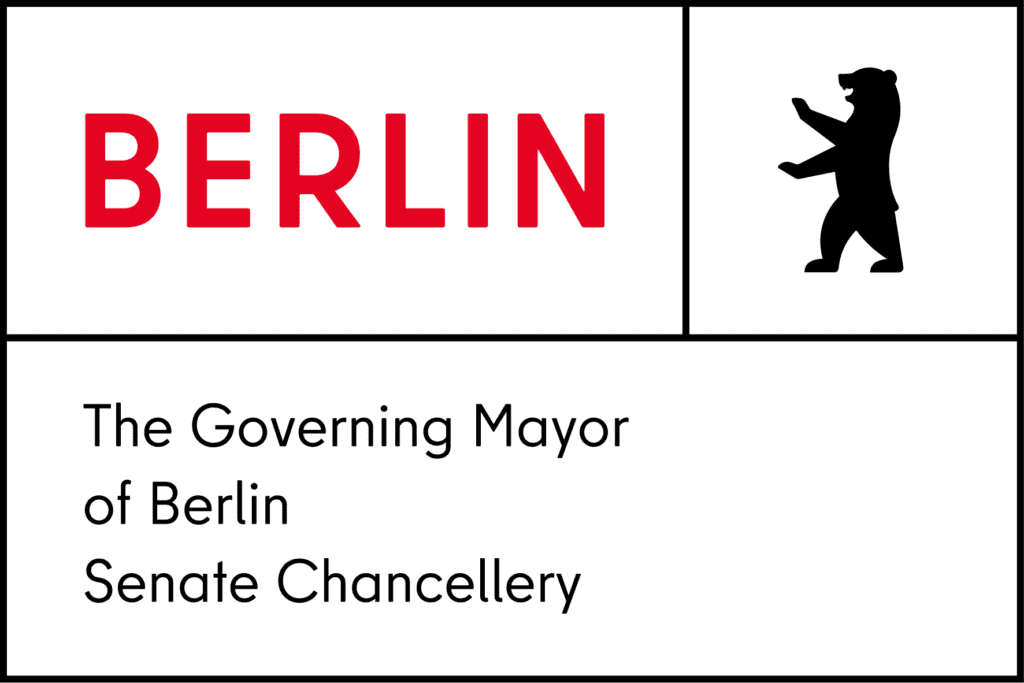A normal morning in Berlin: we take a look at the weather app, check the departure times of our bus and quickly look for an address to send a parcel to. Behind these everyday moments lies an invisible but indispensable resource: open data. But what is open data anyway? And how do citizens, the economy and administrative digitalisation benefit from cities making their data open and comprehensible?
In Berlin, the Open Data Informationsstelle (ODIS), among others, provides free access to municipal data. Lisa Stubert (Division and Project Management), Klemens Maget (Knowledge Transfer & Communication), Hans Hack (Data Visualisation & Programming), Anna Meide (Data Visualisation & Concept Development) and Max Eckert (Data Scientist) tell us about their work with open data. The team explains how data visualisations can set new discourses in motion, what challenges arise when working with open data and where open data can still lead Berlin.
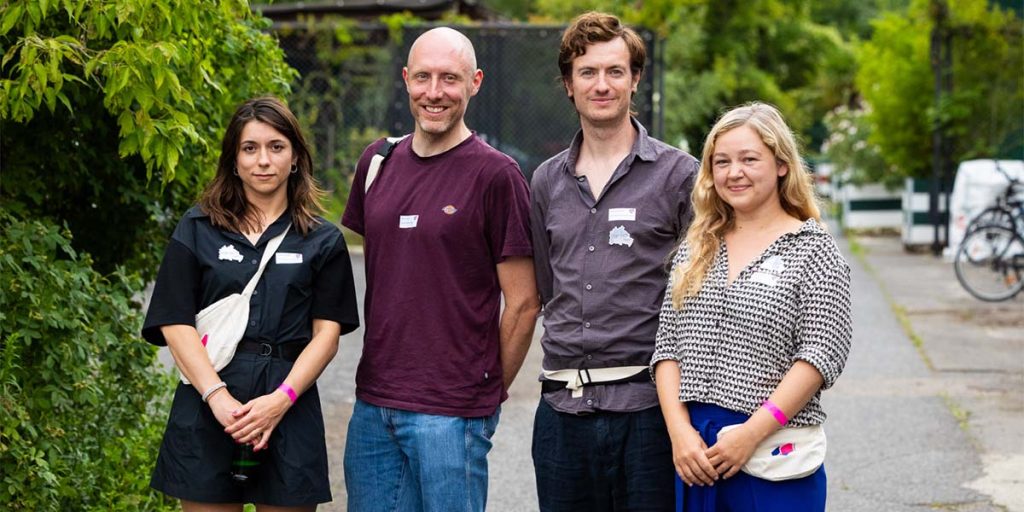
What is open data and what are its greatest advantages?
Lisa: Data is often collected for a specific purpose. When this data is published as open data, it leaves its original area of use. This opens up new perspectives and ideas for use that the original data owners might never have thought of. As a result, innovative ideas and new use cases emerge. For me, this data-based value creation is one of the most important reasons why I promote open data.
Klemens: Open data is data that can be freely used, redistributed and reused by anyone. One important criterion is that access should be as low-threshold as possible. Ideally, the data should be well described and stored in machine-readable formats in a centralised location. For Berlin administrative data, for example, this is the open data portal daten.berlin.de. This makes it easier to find, use and combine different data.
Hans: Sharing information transparently is important in order to create trust and acceptance for official decisions among the public. A common misunderstanding is the assumption that open data and the protection of personal data are mutually exclusive. However, the data we work with is rarely directly related to individuals. If it does, it is anonymised and aggregated, as in the case of the lending data from the Pankow libraries, for example. These and similar open data projects ultimately help to promote transparency and innovation and improve public services.
How does ODIS contribute to the promotion and dissemination of open data?
Klemens: Anyone who wants to or should publish data is initially faced with a large number of questions and possible procedures that need to be clarified. Among other things, we support the administration with the Open Data Journey to provide a clear step-by-step guide that covers all important aspects of data publication and provides helpful materials. Networking between the various stakeholders is also very important. To this end, we support formats such as the Open Data Breakfast, the Open Data Working Group (organised by the Berlin Senate Chancellery) and the presentation of Berlin’s open data activities at conferences. Other ODIS formats include workshops and training courses on data visualisation, in which we enable participants to work with data.
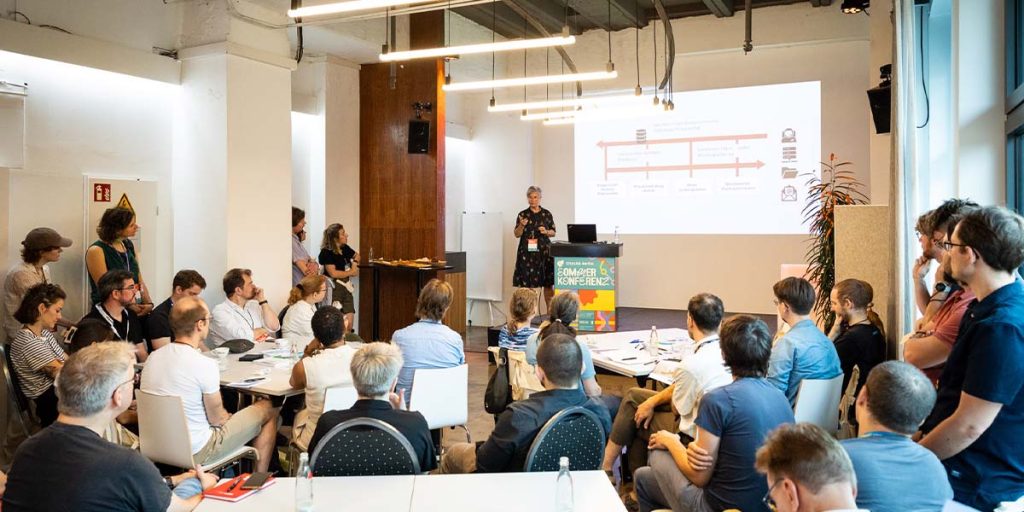
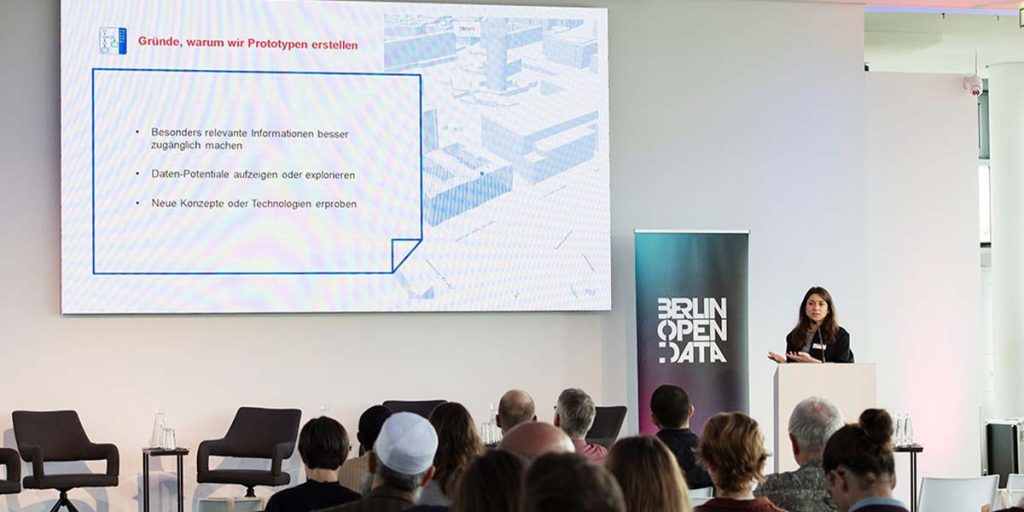
Anna: When we make data ‘visible’, it helps us to initiate new discourses. To promote and disseminate open data, we therefore create interactive, digital data visualisations in which we process open data and show what is possible with it. This includes ODIS projects such as KiezColors, IHK-Branchenpuls and EnergieCheckpoint. These projects can then serve as discussion starters, e.g. about the quality and availability of the data. One of our newer formats is the Datenperle. This regularly published data visualisation series presents a data set that we have helped to open up. The format is also accompanied by illustrations and thus combines data-based content and knowledge communication on the topic of DataViz.
Lisa: We are exploring new approaches and technologies to provide administration and urban society with tools that make it easier to share, find and use data. Our working environment allows us to try out innovative ideas and learn from living objects. With our case study on the Organigramm-Tool, we are investigating how linked data can be implemented in Berlin. We are also using Geoexplorer,to test how AI can be used to make data more accessible. The findings from these projects help us to formulate the requirements for a planned data hub for Berlin more precisely together with other stakeholders.
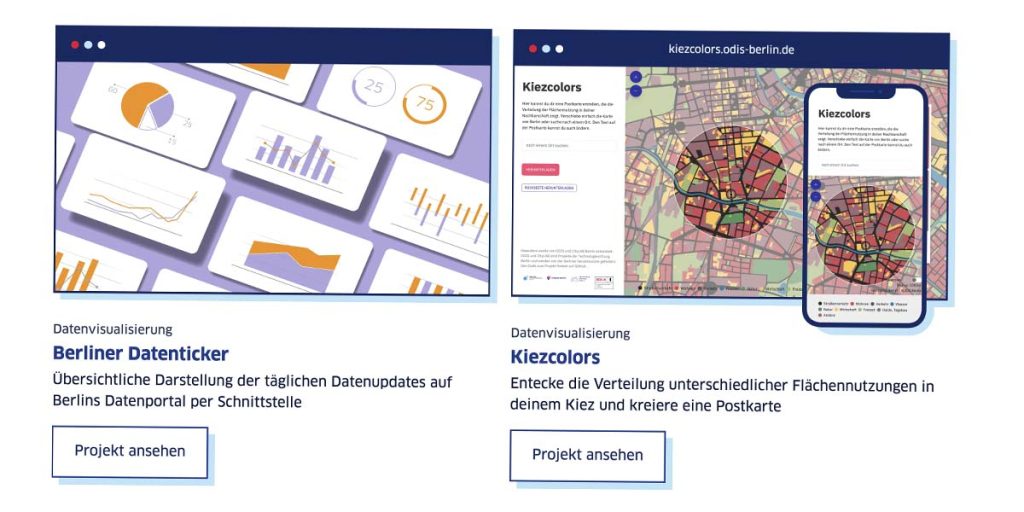
What specific examples are there where open data has improved people’s everyday lives?
Hans: There are many examples where we don’t even realise that they are based on open data. We check the weather every day, often based on data from the German Weather Service. We look up how to get from A to B based on public transport data. Or look for an address to send a parcel to, based on open geodata.
Max: One example of a simple but very effective way of processing open data is the website https://www.brokenlifts.org/. It provides an overview of all lifts in BVG and S-Bahn Berlin stations, including current faults and maintenance. This allows people who rely on lifts to check the status of the lifts before they start their journey. The lift fault information from the Berlin S-Bahn and BVG is retrieved, analysed and bundled every quarter of an hour as a database. This project is also an example of successful collaboration between data providers (local transport companies) on the one hand and users of this data on the other.
Anna: Our Berliner Erfrischungskarte, which shows cool, shady and refreshing places in Berlin on one map, is for me a successful example of what is possible when many different open data from different sources are combined. It is also a great example of how diverse the use cases and target groups can be. From climate resilience research and urban planning to planning a family day out at the weekend – the map is relevant from a variety of perspectives.
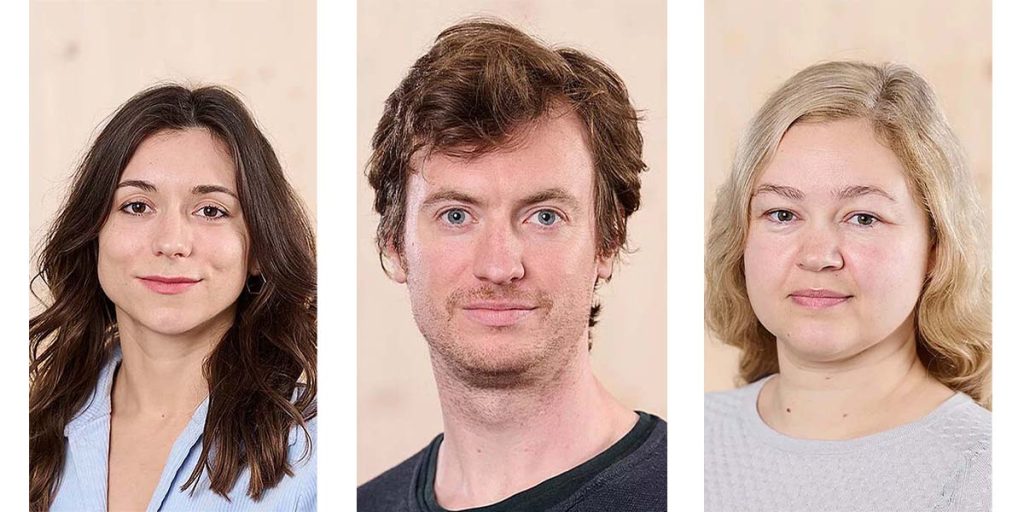

What are the challenges of collecting and providing open data?
Anna: With open data, there is unfortunately often a lack of appropriate data quality, but also a lack of the right data formats. For data sets to be easily reused, they should not only be publicly accessible, free of charge and permanently retrievable, but also machine-readable. This is where we regularly encounter hurdles, for example when data is created solely with a focus on human readability, e.g. for use in PDF reports.
Lisa: We are often asked why the effort should even be made to make this or that data set available as open data. Who would want to use this data outside the circle of experts?How do you measure the ‘impact’ of a data publication? These questions are not easy to answer, as it is in the nature of things that we cannot always find out or ensure whether and how the data will be used with open data. However, this also means that you never know in advance whether a supposedly ‘dry’ data set could at some point be the initial spark for an innovative project or the key to the digitalisation of a process.
Max: Sometimes it is not always known within the administration which data is actually available, collected or published where. As a preparatory step for the provision of open data and in order to know a database for digital projects, it is important to create a cross-organisational overview. This also includes the description of the data itself. To this end, we are currently supporting the implementation of data inventories in the authorities.
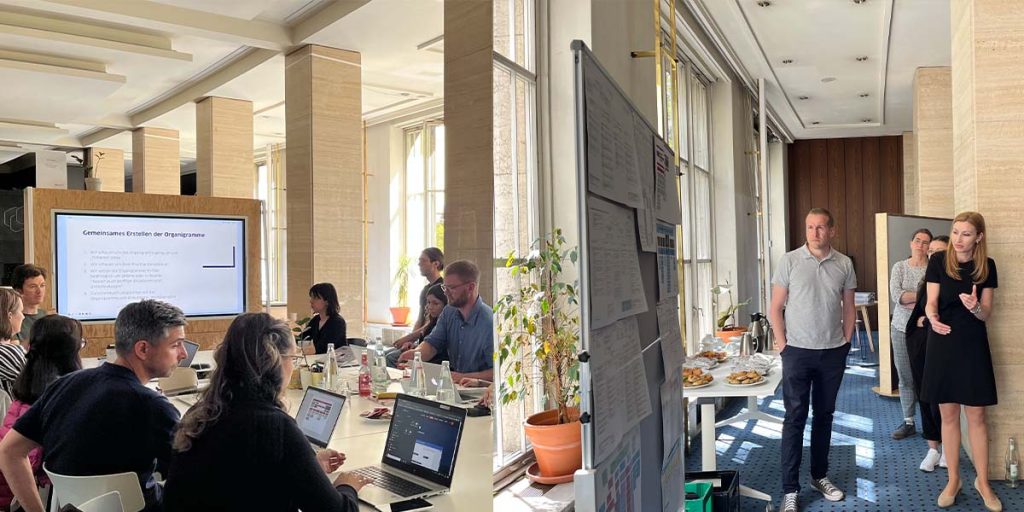
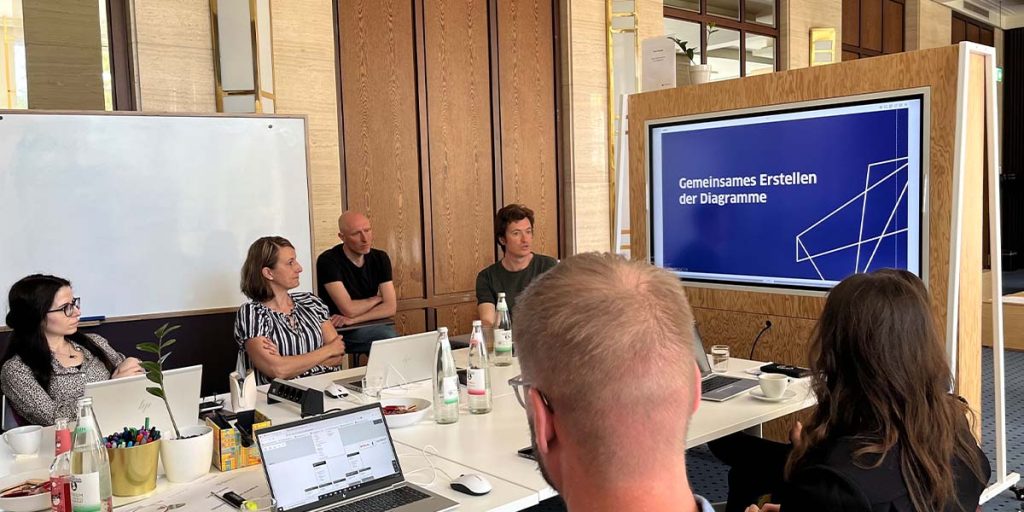
In which areas do you see the greatest potential for the use of open data? Also in cooperation with the administration.
Klemens: In the context of administrative digitisation, there is a lot of potential if administrative employees can easily access additional data outside of their information silos. For example, an open data offering could make it easier to search for relevant information for the fulfilment of tasks, to find contact persons or to work with the data itself, for example to answer written enquiries more quickly, create reports or generally simplify processes and make better data-driven decisions.
Hans: By opening up the data, it also becomes accessible to other people from civil society, business and science, who can develop new perspectives, questions and applications. The resulting projects and synergies can then also benefit the administration. This is clearly visible in projects such as Parla or QTrees which were developed by our colleagues at CityLAB and the Technologiestiftung Berlin – and have also provided new impetus beyond the city limits.
Max: Open data is crucial for the training of machine learning models and algorithms, which are used by developers and companies, for example, to improve decision-making in public administration. It enables more accurate and effective models that support more reliable predictions and better decisions. For example, traffic and health data can be used to control traffic flows and recognise disease outbreaks more quickly. In the long term, this can lead to more efficient infrastructures and better public health.
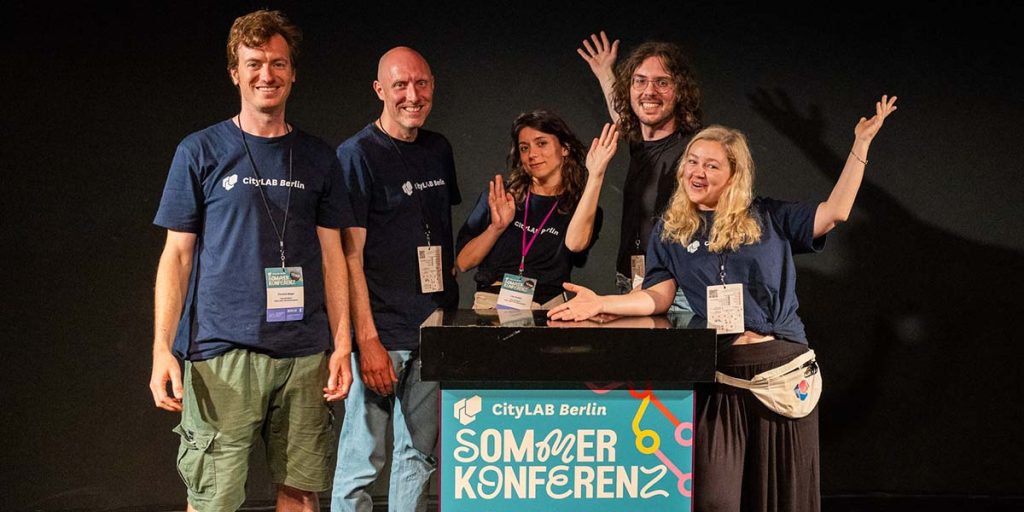
Despite the challenges of data quality and accessibility, open data offers great opportunities for the development of smart urban solutions. Initiatives such as the Open Data Informationsstelle in Berlin play a key role in facilitating access to this data, initiating new discourse and making potential visible. In the long term, the use of open data can therefore contribute to a more sustainable and liveable city. Thank you for the insight, dear ODIS!
